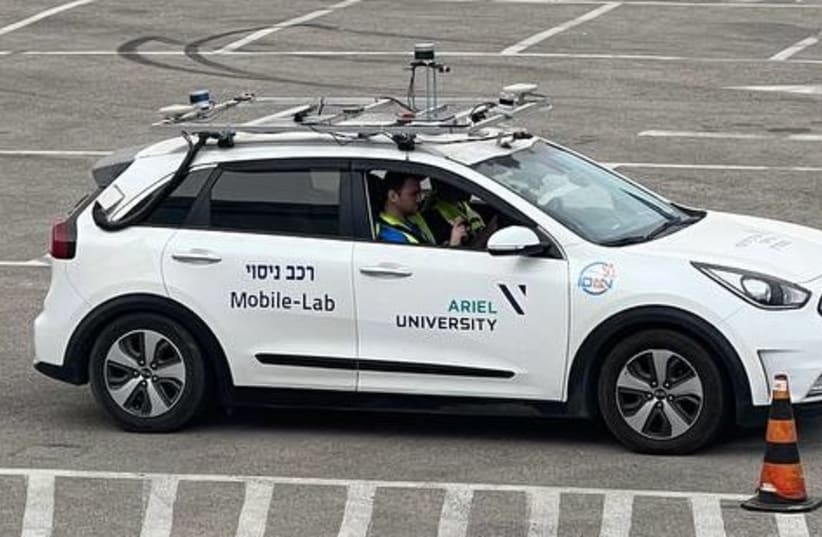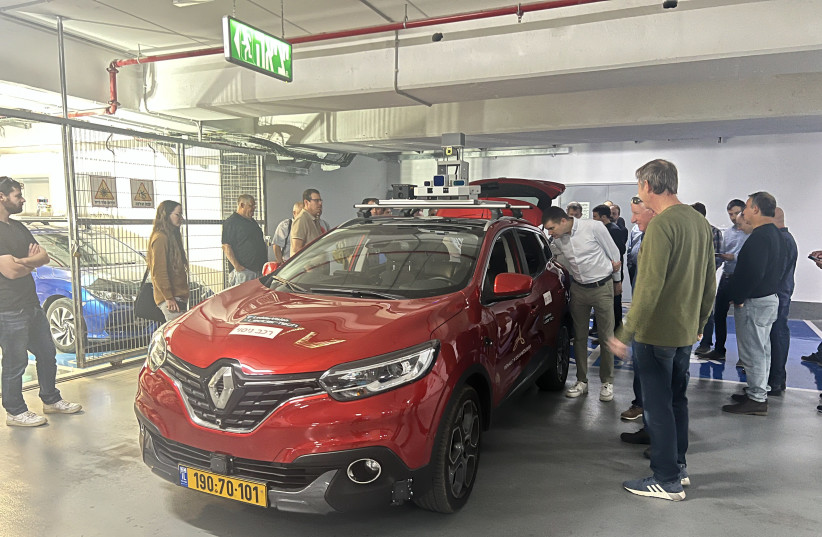The AVATAR Consortium (Autonomous Vehicle Advanced Technologies for Situational Awareness) conducted a demonstration of its concept to improve decision-making during driving in autonomous vehicles, the group announced on Sunday.
The consortium is developing a framework for advanced generic technologies that can't be sourced from other countries due to commercial conditions.
Funded by the Transportation Ministry and the Israel Innovation Authority, the consortium is made up of seven leading Israeli tech companies and academic institutions, including defense manufacturer Rafael Advanced Defense Systems, LiDAR manufacturer Opsys, AI and computer vision company ThirdEye Systems, VayaVision, which develops environmental sensing solutions for autonomous vehicles and advanced driver support systems, Cognata, which makes large-scale vehicle simulations, and defense company Elbit Systems.
Which Israeli academic institutions are participating?
Researchers from the Technion-Israel Institute of Technology, Tel Aviv University, Bar-Ilan University, Ben-Gurion University of the Negev, the Weizmann Institute of Science, the University of Haifa and Ariel University are also members of the consortium.
In a demonstration, sensors and computer systems developed by companies in the consortium were installed on a test vehicle. Following the demonstration, the test vehicle will be sent to the Renault-Nissan-Mitsubishi Innovation Lab in Tel Aviv. There, researchers will test the technologies used in the prototype.
“After three years of activity, the AVATAR Consortium demonstrated a variety of autonomous vehicle decision-making technologies.”
Daniella Gera Margaliot, Deputy Managing Director, Smart Mobility Initiative
“After three years of activity, the AVATAR Consortium demonstrated a variety of autonomous vehicle decision-making technologies,” said Daniella Gera Margaliot, deputy managing director at the Smart Mobility Initiative.
“The particularly successful collaboration between seven companies and seven leading research establishments in Israel is another layer in the Transportation Ministry’s practice of promoting advanced technological solutions with a view to improving the safety of road users and streamlining traffic.”
“The Israel Innovation Authority is deeply committed to empowering and integrating key players in academia and the industry in the ecosystem that deals with sensors, connection and visualization of data in autonomous vehicles, enabling them to maximize their technological and economic value,” said Aviv Zeevi, vice president of the Technological Infrastructure Division at the Israel Innovation Authority.
“This is exactly the purpose of this consortium, and we await the groundbreaking industry-related news that we are confident we will hear from them.”


